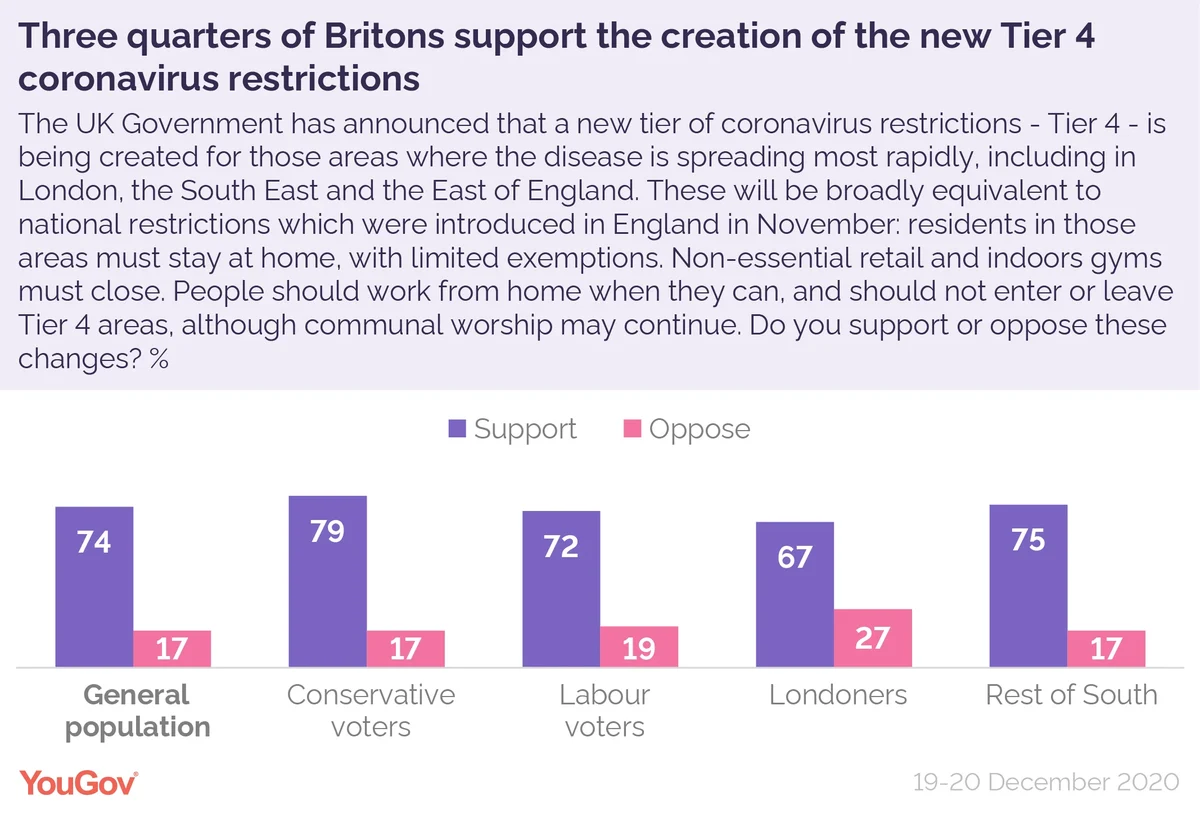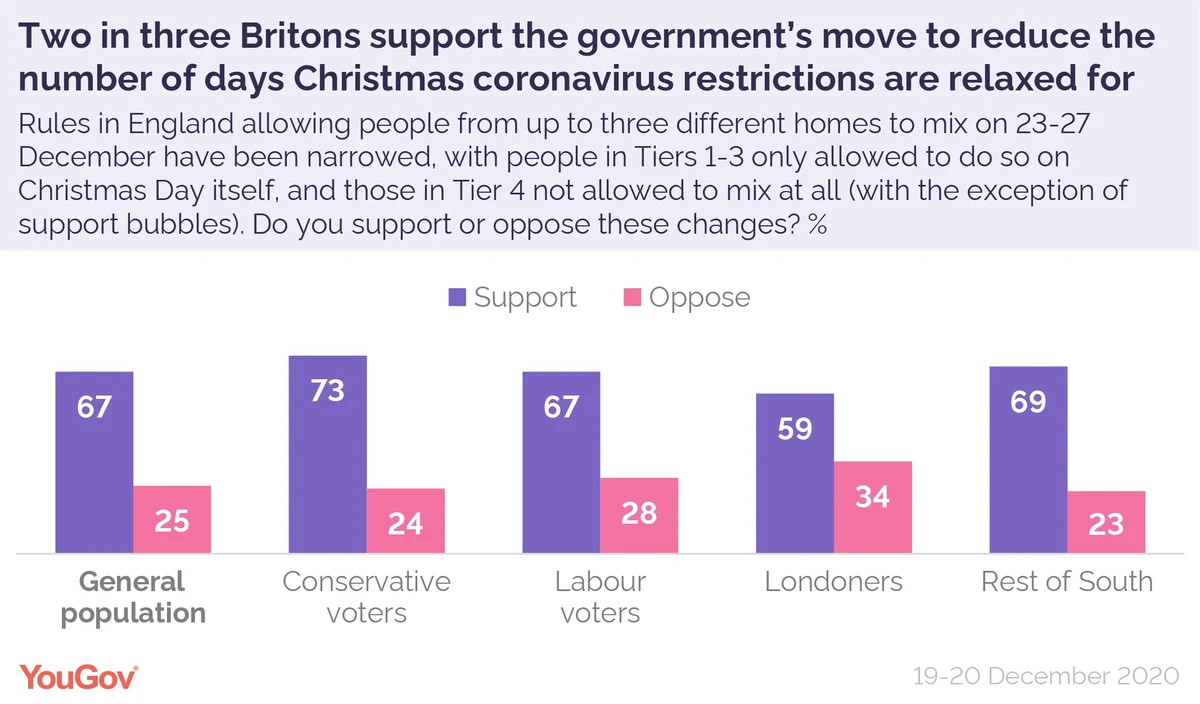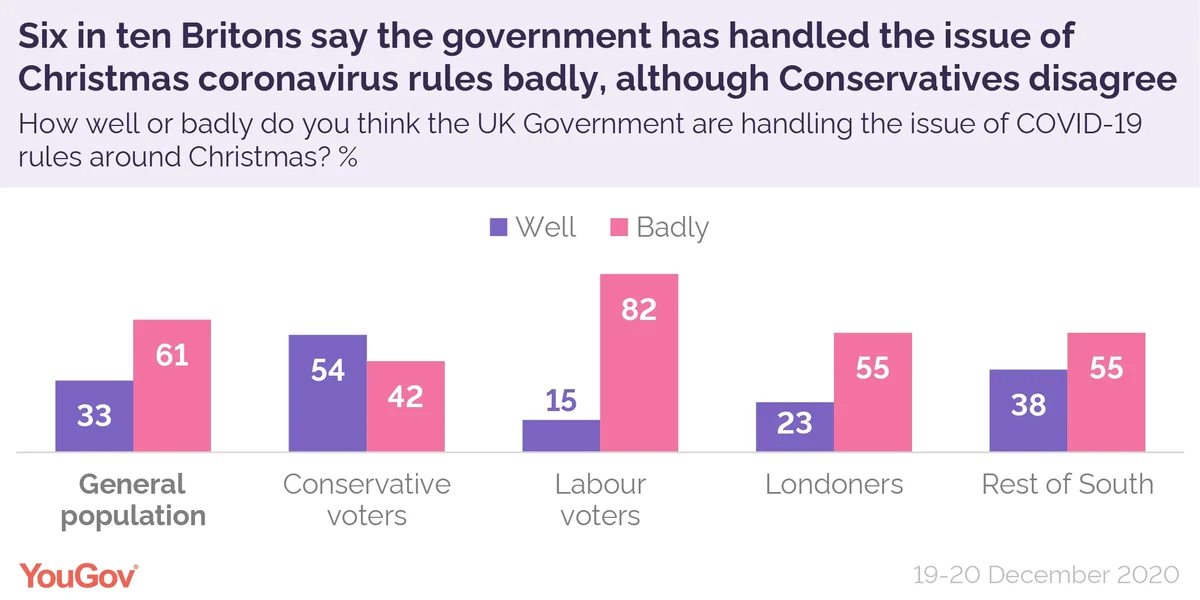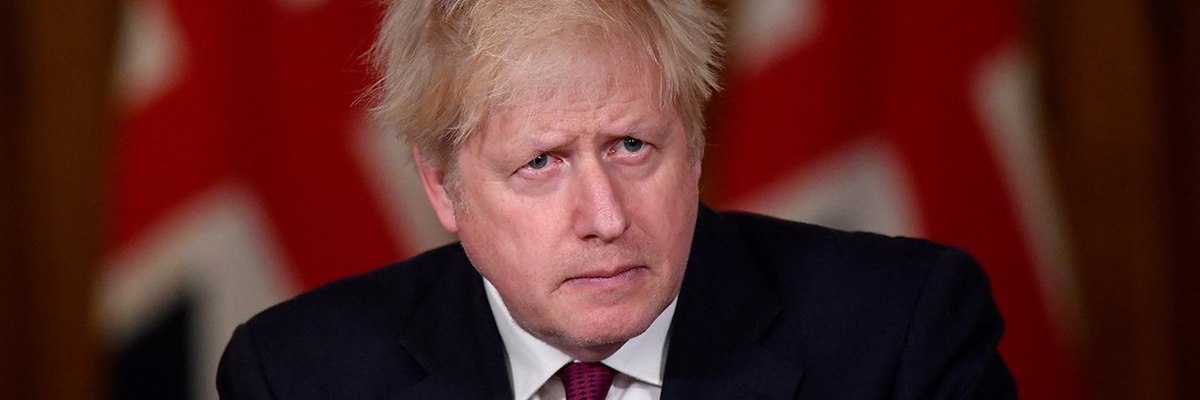Londoners and young Britons are less supportive, although most still back the new rules
Yesterday prime minister Boris Johnson announced that a new tier of coronavirus restrictions – Tier 4 – was being created in response to rapidly increasing case numbers in London and parts of the South East and East of England.
Tier 4 restrictions are broadly equivalent to England-wide restrictions that were in place in November: residents in Tier 4 must stay at home, with limited exemptions, non-essential retail and indoors gyms are closed, people should work from home when they can, and should not enter or leave Tier 4 areas, although communal worship may continue.
As has been consistently the case whenever the government introduced a toughening of coronavirus restrictions, Britons are overwhelmingly supportive. A snap YouGov poll has found that three quarters (74%) support the creation of Tier 4, including 48% who say they “strongly support” it. Only 17% are opposed.

Londoners are slightly less likely to back the move, at 67%, although opinion in the rest of the South matches the national rate (75%).
Age is a key factor, as it has been for some time now on coronavirus restrictions. The older Britons are, they more likely they are to support the new rules: 86% of those aged 65 and above, a figure which declines with each age group before bottoming out at 61% of 18-24 year olds.
Politically speaking, however, the move has strong bi-partisan support. The government has the backing of 79% of Conservative voters and 72% of Labour voters when it comes to Tier 4.
Tightening of Christmas regulations is also supported
At the same time the government has also announced that the planned relaxation of coronavirus rules for Christmas will be narrowed in England. The ability to form a three-household bubble from 23-27 December has been pulled back to just 25 December for people in Tiers 1-3, and scrapped entirely for those living in Tier 4.
A YouGov poll from earlier in the week had already shown that most Britons (57%) had wanted to scrap the relaxation entirely. Last night’s snap poll finds that there is strong backing for the government’s decision, with two thirds (67%) of the public supporting the move. Only a quarter (25%) are opposed to the rules revision.

Again, Londoners are an outlier, with slightly lower support (59%), while support in the other regions of Britain generally matches the national average.
Likewise, the age difference on this change is also substantial. While 49% of 18-24 year olds back the new Christmas regulations, this figure increases with each age group to a maximum of 82% of 65+ year olds.
There is cross party backing for the Christmas changes as well: 73% of Conservative voters and 67% of Labour voters support the move.
Most Britons think the government have handled COVID and Christmas badly
The prime minister has come in for much criticism for having to change the rules so close to Christmas. When challenged in the House of Commons about the danger the relaxation posed earlier this week, Boris Johnson’s response had been to dismiss such fears, and told people to have a “merry little Christmas”.
Most Britons (61%) say that the government has handled the issue of COVID-19 rules and Christmas badly. This includes almost four in ten (38%) who think they have handled it “very badly”. One in three (33%) think the government have handled affairs well.

Labour voters are overwhelmingly critical of the government’s approach, with 82% saying they have done badly, including 61% who consider it very bad. Conservatives, by contrast, actually tend to think the government has been doing a good job. Half (54%) say they have done well, compared to 42% who think they have done badly.
This does represent an acknowledgement among some Conservatives that the government has handled the situation around Christmas worse than their general approach to the disease. Our coronavirus tracker found earlier in the week that 61% of Tories think the government is handling the issue of COVID-19 well, compared to 35% who think it is handling it badly.








